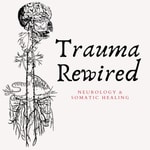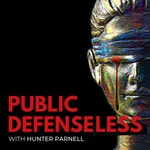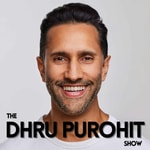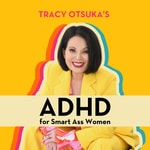Sex, Love, and Addiction – Détails, épisodes et analyse
Détails du podcast
Informations techniques et générales issues du flux RSS du podcast.
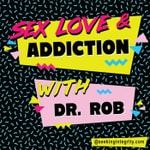
Sex, Love, and Addiction
Robert Weiss, PhD, MSW
Fréquence : 1 épisode/16j. Total Éps: 166

Classements récents
Dernières positions dans les classements Apple Podcasts et Spotify.
Apple Podcasts
🇺🇸 États-Unis - sexuality
28/07/2025#73🇺🇸 États-Unis - sexuality
27/07/2025#70🇺🇸 États-Unis - sexuality
26/07/2025#68🇨🇦 Canada - sexuality
25/07/2025#90🇺🇸 États-Unis - sexuality
25/07/2025#67🇨🇦 Canada - sexuality
24/07/2025#40🇺🇸 États-Unis - sexuality
24/07/2025#71🇨🇦 Canada - sexuality
23/07/2025#23🇺🇸 États-Unis - sexuality
23/07/2025#88🇬🇧 Grande Bretagne - sexuality
22/07/2025#77
Spotify
Aucun classement récent disponible
Liens partagés entre épisodes et podcasts
Liens présents dans les descriptions d'épisodes et autres podcasts les utilisant également.
See all- https://brenebrown.com/
436 partages
- https://drjessicahiggins.com/podcasts/
316 partages
- https://sexandrelationshiphealing.com/
271 partages
- https://twitter.com/robweissmsw
158 partages
- https://twitter.com/APSATSOrg
2 partages
- https://twitter.com/namasteadvice
1 partage
Qualité et score du flux RSS
Évaluation technique de la qualité et de la structure du flux RSS.
See allScore global : 53%
Historique des publications
Répartition mensuelle des publications d'épisodes au fil des années.
Part 2: Couples Make it Work Only When I Do My Part with Dr. Geoff Goodman
Épisode 116
jeudi 12 septembre 2024 • Durée 30:28
Dr. Rob continues his conversation with Dr. Geoff Goodman about the power of the 12 Step program, which worked for Geoff when nothing else did. Finding an effective therapist who can support you and your partner requires so much more than just delving into the past - it requires making demands and setting goals that you can realistically achieve as you move forward. One huge component of recovery for both you and your partner is finding the right support groups. If the first one isn’t a good fit, don’t give up, keep trying until you are surrounded by people who can lift you up, whether you are the recovering addict or the spouse!
TAKEAWAYS:
[1:30] The power of the 12 Step program, for Geoff, is that it works.
[3:18] Understanding the why behind your addiction won’t automatically shift your behavior.
[8:50] Effective therapists will help addicts beyond simply understanding their past.
[11:28] If you’re acting out sexually in ways that are ruining your life, your therapist can help!
[13:35] Addiction recovery does not equate to relationship therapy.
[16:02] How might spouses consider self-examination without feeling blamed for their spouse’s addiction?
[19:45] Finding needed support when finances and resources don’t allow it.
[24:26] “I don’t belong there”- how to find the right support group for you.
RESOURCES:
Free Sexual Addiction Screening Assessment
QUOTES:
- “I didn’t want to make a complete lifestyle change. I wanted to get better, but avoid that.”
- “Addiction is so irresistible that knowing the causes is a nice intellectual pursuit but it doesn’t really help you on the ground.”
- “The 12 Step Program isn’t going to turn your husband into Prince Charming.”
- “You are healing and changing itself does not make you a loving, kind, empathing, engaged partner. It just means you stopped lying and stopped hating yourself.”
Part 1: Couples Make it Work Only When I Do My Part with Dr. Geoff Goodman
Épisode 115
jeudi 5 septembre 2024 • Durée 29:46
Dr. Rob welcomes back podcast guest Dr. Geoff Goodman for a conversation about the impact that addiction has on relationships. He offers insights into the struggle of not only the addict, but of their partner as well, and shares his experience with falling in love with a woman who did not know that he was an addict. Some partners are more supportive and involved while others appear to be disinterested or even disgusted and fed up. No matter what scenario you’re in, there is hope for finding a life beyond addiction, together.
TAKEAWAYS:
[2:24] What people don’t understand about addicts, from the partner perspective.
[3:56] Dr. Geoff revealed his own sex addiction to his partner long before they were married.
[6:30] From a spouse’s point of view, learning about addiction can feel like a bait and switch.
[7:50] ‘Don’t ask, don’t tell’ only works for so long in a committed relationship. Even the ‘right one’ can’t resolve a loved one’s addiction.
[10:15] Willing yourself out of addictive behavior has a very short success rate.
[11:22] When enough is enough, there is hope for addicts.
[12:46] Addiction prevents partners from being fully committed to each other, both in and out of the bedroom.
[16:40] Reading literature about porn addiction can help a partner understand what you are going through.
[18:46] Your partner knows better than anyone what you are going through in recovery.
[19:39] Geoff’s career of treating sex addicts didn’t start until he was in recovery.
[22:40] Geoff explains why he doesn’t self-disclose to his patients.
[24:50] The impact of addiction and recovery on parenting.
RESOURCES:
Free Sexual Addiction Screening Assessment
QUOTES:
- “From a spouses’ point of view, addiction must feel like a bait and switch.”
- “Reading literature about porn addiction helped broaden the picture to help her understand that this isn’t unique to me. This is a problem that many men experience.”
- “I can’t even imagine being a father and acting out, even though I know it happens all of the time.”
BONUS: Why Should I Write Down All My Anger and Hurt?
Saison 1
jeudi 4 janvier 2024 • Durée 33:01
Dr. Rob and Tami talk about the healing properties a journal practice can have. A listener wrote that her therapist wants her to journal out the resentment and anger that her SA has caused her, but the mere thought of doing this gets her re-triggered and angry all over again. Is there really a point to all of this aside from re-remembering the betrayal?
TAKEAWAYS:
[:25] My SA husband’s entire family has suffered from some sort of sexual addiction or abuse. Is all of this hereditary?
[8:30] How can intermittent reward cause or enhance relationship addiction?
[16:15] What’s the point of writing my betrayal down? I feel so angry just thinking about it.
[18:50] If you have a lot of anger inside you, a journal practice can be very healing.
[19:45] My addict is weaseling out of our initial agreement. What should I do?
[26:05] If you’re not doing the work, then it doesn’t matter what you say or do.
[26:15] He’s sober but still can’t be intimate with me. He says he feels shame. Is this just an excuse?
RESOURCES:
Email Tami: [email protected]
Betrayal Trauma with Tim Stein
Saison 1 · Épisode 55
jeudi 4 juillet 2019 • Durée 37:26
Tim Stein is a Licensed Marriage and Family Therapist and Certified Sex Addiction Therapist, engaged in helping couples find the love they are meant to have. Tim is the co-founder of Willow Tree Counseling in Santa Rosa, and works with sex addicts and their partners providing individual, group, and couples therapy. Tim is a bright and rising star in the field of sex addiction, and speaks about the expected betrayed partner responses, along with the honesty that must be present in order for true healing and recovery to occur.
TAKEAWAYS:
[3:19] Tim co-founded Willow Tree Counseling in Santa Rosa, and this gives an opportunity to people on the central coast of California a place to go during this time of trauma and recovery.
[5:32] Tim understood addict recovery, and got to understand the trauma betrayed partners really went through after working with a colleague. This folded into the partners sensitivity movement, which also goes along with the idea of Prodependence.
[7:38] When a partner is betrayed, there are certain “predictable unpredictable” behaviors and responses. This individual has just had their bottom fall out beneath them, and also may have felt denied of their intuition and devalued for quite some time.
[11:04] Even before a cheating partner is caught, chances are their energy is less than completely loving and connected with their partner. They may start to be even more forgetful, cold or distant, and may be resentful towards their partner to try and justify their bad behavior.
[16:10] Partners can pick up on this energy can have autoimmune or libido issues before the cheating is out in the open. They can pick up on the possible shame and guilt the addict feels, and these cues can cause real physical and emotional symptoms.
[19:02] It’s not a comfortable thing to admit struggle and vulnerability, and even tougher when the addict is in recovery. However, it is part of the important process of building back true trust with their partner and loved ones.
[23:05] Most of the relationships that Tim sees fail occur when the addict isn’t able to do the rigorous work of total honesty and disclosure to make their partner feel safe and understood.
RESOURCES:
Cruise Control: Understanding Sex Addiction in Gay Men
Prodependence: Moving Beyond Codependency
QUOTES:
- “It’s hard to love someone and hurt them at the same time.”
- “Every lie is going to be seen as an example about how you are probably lying about everything.”
- “It’s not a comfortable thing to admit struggle and vulnerability.”
Addiction Treatment: What We Do and Why We Do It
Saison 1 · Épisode 54
jeudi 27 juin 2019 • Durée 33:04
It’s a solo show today as Rob discusses treatment and the crucial healing elements that must be in place when working with addicts. He talks about his experience running the Seeking Integrity treatment center for over 25 years, and how groups can model the closeness and connection that addicts may miss in their upbringing. He also discusses the role of integrity, and how addiction is not an excuse for bad behavior but rather an indicator that one is struggling with issues and trying to work on them.
TAKEAWAYS:
[1:58] Often times someone will say they are entering themselves in a treatment center for one reason, but first we have to really understand why they are coming in. While being a better person is certainly an appropriate goal, it’s really about having integrity and living in a way that doesn’t harm yourself or someone else. Integrity is so important to healing, that is why Rob named his treatment center Seeking Integrity.
[4:05] Addicts are usually unable to get their needs met in healthy and positive ways, and this leads to them living a separate and compartmentalized life, and getting what they want through manipulative behavior. Healing will begin as they start to take care of their own emotional needs and the needs of others instead of slipping into behavior that allows them to disappear into fantasy.
[8:33] Many addicts did not have a model for healthy families or intimacy from their own family while growing up. Understanding that this would cause trauma is called Trauma Informed Treatment. Therapists will understand they have a deep and enduring problem with intimacy and closeness and perhaps are using drugs as an escape.
[11:26] Trauma is not an excuse, it is an opportunity to honor and acknowledge triggers and emotional touch points that keep us disconnected and separated from true intimacy and connection.
[14:33] One of the most important elements of healing is relationships. Groups and programs can give addicts the kind of family experience they never had growing up, and for the first time ever they can learn to depend on other people.
[25:02] If treatment is done right, the clients will get a deep sense that people can be there for them and still give them support.
[29:08] Integrity comes from integration and bringing separate parts together into a whole. Recovery is about not having anything to hide.
RESOURCES:
Cruise Control: Understanding Sex Addiction in Gay Men
Prodependence: Moving Beyond Codependency
QUOTES:
- “The primary problem is not sexual addiction or drug use — that’s the symptom.”
- “Groups bring isolated people together in a place to talk about painful topics and get support — that’s almost like a healthy family.”
- “If you put me in the right environment with the right support — I will get better.”
- “You don’t recover alone.”
- “Being an addict is not an excuse, it’s a responsibility.”
- “In order to receive love you have to live a life of integrity.”
Trauma and Addiction: The Connection with Dr. Jamie Marich
Saison 1 · Épisode 53
jeudi 20 juin 2019 • Durée 35:50
Dr. Jamie Marich is an EMDR therapy master trainer and author of 5 books including Process: Not Perfection and creator of the Dancing Mindfulness approach to expressive arts therapy. Dr. Jamie joins the show to talk about expressive arts solutions for trauma recovery, what trauma work is, how someone knows if they have trauma, and the resources to begin working on it. She and Rob also talk about both the similarities and differences of trauma work in addiction and therapy and what the two could stand to learn from each other to give even more support to those affected.
TAKEAWAYS:
[3:08] Jamie worked in Humanitarian Aid in Bosnia in 2000-2003, and she met Janet, a mentor that got her on her own path to recovery. Janet validated so much of her experience in addiction by telling her “It’s no wonder you became addicted after everything you went through, but what are you going to do about it now?”. This was the first time someone framed it in a way that made sense, and put her own trauma into perspective. It challenged her to take action and really work on her issues.
[5:54] Often times we associate trauma with putting the responsibility on someone, especially when it is from our early childhood. Jamie explains that it is good to practice mindfulness, but first we have to explore why one is difficult to stay in the moment in the first place.
[10:46] The idea of safety and a commitment to the well being of the addict is strong from both the addiction and therapy treating camps. It’s not productive to keep citing trauma without addiction, so to explore one we have to consider the other. Jamie will have a conversation with her clients about what safety really means, and how it’s okay and not “bad” or “wrong” if they aren’t able to feel perfectly safe right away, or even ever.
[12:21] Jamie defines trauma as any unhealed human wound. It can come in different forms such as physical, mental, emotional, and trauma work is the broad spectrum of connection and activities that helps us know that we are not our thoughts, feelings and sensations, we are just the person that has them.
[17:23] Whether your trauma is associated in your memory or not, it can play out in how the body responds. The body may react thinking it’s protecting itself, and so much of trauma work needs to involve embodied activities that help you realize a more adaptive kind of coping. It is possible that through this work, people will feel their feelings for the first time in a long time.
[25:40] Jamie encourages us to give it 3 sessions with a therapist to see if there is a connection and see if they give you choice with the treatment options they offer. For example, they may be able to work with you through cognitive therapy, expressive arts work, and EMDR.
[28:20] Both a 12 Step Group and expressive arts work allows us a safe place to connect with ourselves and others.
[31:55] Jamie provides much value and resources for everyone. Her latest book, Process Not Perfection, can be an addition to therapy or a self guided resource for healing.
RESOURCES:
Cruise Control: Understanding Sex Addiction in Gay Men
Prodependence: Moving Beyond Codependency
QUOTES:
- “I had no idea that trauma had so many broader applications.”
- “It’s not the wound itself that causes us problems, it’s when the wound remains unhealed.”
- “Part of healing and empowerment is realizing you have a choice in the matter.”
Understanding Professionals in Crisis with Ryan Patrick Bayley, MD
Saison 1 · Épisode 52
jeudi 13 juin 2019 • Durée 35:24
Even those of us with the most education and opportunities can still end up struggling with intimacy, drugs, and addiction. Executive Coach Dr. Ryan Bayley joins the show today to discuss his work helping professionals redesign their life events to close the gap between where they are and where they want to be. Ryan draws from his own experience in Emergency Medicine to coach physicians from anywhere to burnout to just looking to find more stability in their life. He also shares why physicians have a high burnout rate of almost 60%, what burnout looks like, what types of situations tend to get professionals in trouble, and how working with a coach can help.
TAKEAWAYS:
[1:44] Ryan himself is double-boarded in Emergency Medicine and Emergency Medical Services, and holds an adjunct faculty position at the Duke University School of Medicine. Ryan went to medical school at Vanderbilt University School of Medicine and completed his undergraduate at Harvard University.
[2:05] Ryan became a coach because he feels physicians and high performing individuals should feel engaged and challenged, and yet not at the cost of being able to honor what is important to them outside of work.
[3:08] Often the high performing professions are in an environment where they have a lot of responsibility and there is little tolerance for error or weakness. This is especially true for physicians, and burnout will cause them to act out and possibly lose a career for which they sacrificed years and much of their identity. Physicians have a 60% burnout rate, and a single act of disruptive behavior can lead to them losing their license completely.
[14:37] As a coach, Ryan sits down with his client and helps develop a vision step by step of where they want to be from a holistic point of view. They then map out action steps to get there, and the accountability steps it will take to move forward towards that vision. This is similar to the mindfulness and support that a sponsor for a 12 Step program would give someone they are working with.
[22:25] It is possible to be very smart, and yet emotionally empty and dissatisfied at the same time. Physicians especially are often very high achievers, perfectionists and do extreme work. They “need to be needed” and Ryan works with them to have them achieve as much health in their career, or possibly realize they are ready for a career change.
[28:42] Since physicians rely on trust from their patients and the families of their patients, there is little room for instability and symptoms of burn out. Having a coach like Ryan can help them find stability and reflection to do their best, so their health is in good shape to in turn help others.
[32:41] Working with a coach is a two way street, and it is important to discuss goals with your potential coach to see if it is a match for both parties.
RESOURCES:
Cruise Control: Understanding Sex Addiction in Gay Men
Prodependence: Moving Beyond Codependency
(919) 951-7709
QUOTES:
- “Our intellect and emotions can run on two different tracks.”
- “Knowing what you want to move towards is likely to result in sustained change.”
- “You can be very smart, and also very empty emotionally.”
Money, Power, and Sex with Debra Kaplan
Saison 1 · Épisode 51
jeudi 23 mai 2019 • Durée 36:39
Debra Kaplan, MA, LPC, LISAC, CMAT, CSAT-S specializes in helping adults and adolescents overcome addictions, issues related to sex and love, relationship struggles and unresolved traumatic stress. Today she shares information on how sex, money, and power play a role in addiction, what her experience was like working in the heavily male-dominated environment of Wall Street, what monetized rage is, and the first steps one must take in order to break free of the need for external validation to feel worthy and safe.
TAKEAWAYS:
[3:35] Although we do see abuse of sex and power in a large public forum, it can also happen in subtle ways. It may even be hard to notice that one is being abused, and not always understood by the one being controlled.
[5:16] Monetized rage speaks to the monetary exploitation of one individual by another. It can be an exchange of sex for money, cutting off funds, or only giving funds when a certain monetary need is met.
[6:20] There is a self centeredness that exists with sexual exploitation. It can take place when there is a power differential, at any level of income and any demographic, age or gender.
[12:46] It is almost a universal experience that women have to put on some type of armor to just exist in a culture where remarks and suggestive behavior run rampant.
[17:22] Women gear up to protect themselves one way or another in subtle ways. This can look like dressing down at work intentionally, or trying to also be overtly sexual to deflect unwanted attention.
[23:09] The greatest factors that negatively impact relationships and cause divorce are finance and work stresses, and cheating / infidelity. Debra works on helping couples realize their individual value, and what each of them bring to make the relationship better.
[27:40] In a culture that thrives on showing off money, sex, and power, it is imperative for people to know their self worth as a human individual.
[32:41] Social media has given us a 24/7 access to keep up with the Joneses, so it’s important to know that it’s just a highlight reel of people’s lives, and there is much under the surface we don’t see.
RESOURCES:
Cruise Control: Understanding Sex Addiction in Gay Men
Prodependence: Moving Beyond Codependency
Debra Kaplan Counseling Facebook
Debra Kaplan Counseling LinkedIn
Decades After ‘Boom Boom Room’ Suit, Bias Persists for Women
QUOTES:
- “What can go wrong when you have sex, money, and power?”
- “Abuse can happen in subtle, overt ways.”
- “Whatever I accomplished had to be 3x what my male colleague achieved.”
- “Wall Street has been immune from the front page social media fodder.”
Healing Trauma and Addiction through Connection with Andrew Susskind
Saison 1 · Épisode 50
jeudi 16 mai 2019 • Durée 34:51
Rob is joined with colleague and friend Andrew Susskind in today’s episode to talk about the issues that surround recovery and healing. They discuss what to expect during recovery, and where some may still be stuck even if they are moving forward. Andrew is a Licensed Clinical Social Worker, a Somatic Experiencing Practitioner, Brainspotting Practitioner and Certified Group Psychotherapist. They also discuss his book It’s Not About the Sex, Andrew’s work with the nervous system, and the resources available to help others understand themselves.
TAKEAWAYS:
[4:02] Addiction, in general, is typically based in broken-heartedness and feeling unworthy. This could be something from someone’s past or early developmental trauma that gets them into a pattern where they are seeking to fill the “hole in the soul” with addictive compulsive behavior.
[7:39] It’s a double problem between the shame that the addiction brings, and the actual feelings that cause the addiction in the first place.
[10:50] Unless there is real help offered in the early stages, it is common for people to act out what has been done to them. Once there is some kind of abuse or trauma where our nervous system has trouble balancing, it can feel like anxiety, panic, or dissociation.
[14:15] Andrew helps his clients with somatic awareness to understand more about what’s happening in the body including thoughts, memories, and sensations. When he discovered this work, it opened up a whole new level of questions to get down to the core of the information coming from their body.
[18:02] As a social worker, it is Andrew’s job to help people find help and healing despite how much money and time they have.
[21:12] We are biologically hardwired for connection, and true recovery lies in being able to feel loveable, desirable, and worthy of others believing in us.
[22:49] Some of the themes that Andrew addresses in It’s Not About the Sex have to do with grief, shame, narcissism, emotional sobriety, regulating the nervous system, and knowing there will be stumbling and fumbling along the way.
[24:49] Connection is important, but having people that are emotionally dependable who can be there in a meaningful and deep way is crucial.
[29:12] It takes two whole people to come together and make a really meaningful relationship and true emotional contentment.
[30:56] For some it’s about trusting others, and some people may want to feel safe in the world. It comes down to each person experiencing intimacy or a meaningful connection in their life, whatever it means to them.
RESOURCES:
Cruise Control: Understanding Sex Addiction in Gay Men
Prodependence: Moving Beyond Codependency
It's Not about the Sex: Moving from Isolation to Intimacy After Sexual Addiction
QUOTES:
- “It’s human nature that often what is done to us, we do to others.”
- “This is an opportunity to learn about yourself, and find ways that work better for you.”
- “Healing does not take place in isolation, you have to sit with another human being.”
Treating Sex and Drug Addiction Together with David Fawcett
Saison 1 · Épisode 49
jeudi 2 mai 2019 • Durée 33:59
Dr. David Fawcett returns to the show today to talk with Rob about all the different ways that drug and sex addiction intersects, what exactly chem sex is and announces their new project Seeking Integrity, the first series of treatment environments that address both issues. David is a therapist, author of Lust, Men and Meth, and expert in methamphetamines and stimulants in sexual behavior. They also discuss the traditional challenges in treating drug and sex addictions together, the biological explanation of why the two fuse together, and how Seeking Integrity helps others within their connection with themselves.
TAKEAWAYS:
[2:07] Over time, the behavior becomes fused so that the person is unable to separate the drug addiction from the sexual problem. When you do two things at the same time and dopamine is involved, it bonds the two things together much like a Pavlovian conditioned response.
[3:56] When an addict experiences an uncomfortable emotion, they go to their “medicine” such as drugs or acting out sexually. As these two become combined, they have an even harder time recovering.
[4:31] Seeking Integrity’s goal is to evolve and advance treatment for addicts of all kinds so they can heal long term. One of the challenges is that this topic is not addressed in drug and alcohol recovery centers, and the two are often treated separately.
[7:53] We still view sexual addiction as a moral issue rather than a medical issue. David finds it helpful to show scientifically based documentation such as brain scans to show that this is not always the case.
[9:20] At Seeking Integrity they work on developing coping mechanisms to lower the chance of transferring one addiction to another.
[11:21] The goal of treatment is to not be perfect right away, but to make strides towards being healthy.
[13:19] The brain has to regenerate dopamine, and while the addict is recovering they may experience long periods of depression, which is why it’s important for them to work with a professional and realize that healing takes time.
[17:38] A lot of addictics have a lot of trouble with intimacy, and much has to do with how they were raised and what they learned about it.
[20:58] Addicts need to reset their brain chemistry so they can learn to be still, and develop relationships that foster connection, joy, and pleasure.
[24:18] Finding connection is at the cornerstone of Seeking Integrity, as that is one of the strongest and most profoundly healing feelings any human can experience.
RESOURCES:
Cruise Control: Understanding Sex Addiction in Gay Men
Prodependence: Moving Beyond Codependency
Lust, Men, and Meth: A Gay Man’s Guide to Sex and Recovery
What’s Wrong With Addiction Treatment
Sex, Love, and Addiction - David’s podcast
QUOTES:
- “What fires together wires together.”
- “We as clinicians are under trained in how to talk about sex.”
- “The manifestation of shame may be different, but shame underlies all addictions.”
- “People can have different tastes, but when it’s paired with drug behavior it’s going to link.”
- “Love, intimacy, and connection are the deepest sources of healing.”


